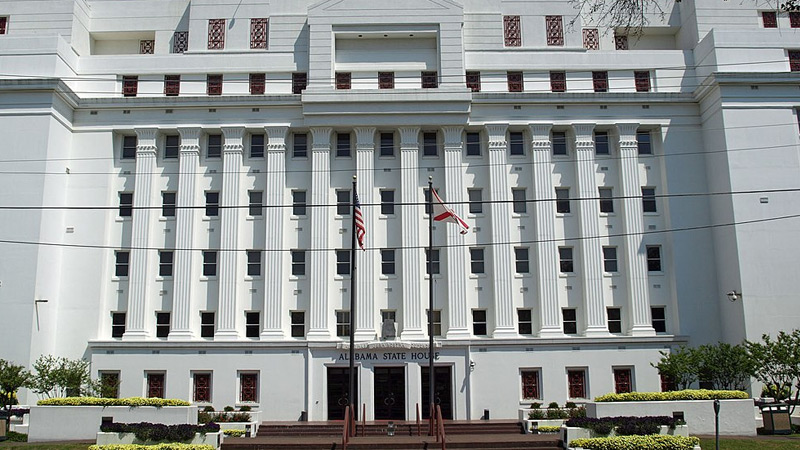Alabama Gambling Bill Passes House Vote

An ambitious bill to introduce regulated Alabama casinos, sports betting, and lottery markets passed a vote in the state’s House of Representatives in Montgomery on Thursday, February 15.
HB151 passed 70 to 32 in favor, with bipartisan support.
It was introduced at the committee stage less than a week ago, indicating the keen interest in the prospect from lawmakers, and has already passed the first of three main votes.
The proposal must now pass a Senate vote, and if successful there, a public referendum on the issue in November.
The bill’s framework would allow legal commercial casinos, Alabama sports betting, and a state lottery, all overseen by a newly formed Alabama Gaming Commission.
The effort is sponsored primarily by House Representatives Chris Blackshear (R-80) and Andy Whitt (R-6). It has also seen support from Governor Kay Ivey, indicating it would be signed if it headed to her desk after a public vote.
The state hasn’t had a referendum on regulated gambling since 1999, when voters rejected a proposed Alabama lottery.
“I have long said the people of Alabama deserve to have another say on gaming, and today’s passage of HB151 and HB152 in the House is an important step forward and very significant, as this has not been accomplished by the House in years,” Alabama Gov. Kay Ivey said in a statement issued after the vote.
Detailed Proposal
The 139-page proposed legislation would allow up to 10 physical casinos, with retail sports betting and mobile betting apps tethered to those casinos.
Three of those casinos already exist, operated on Tribal lands by the Poarch Creek Band of Indians. They would be given the option to apply for sports betting licenses as well.
One space is reserved for an off-reservation Tribal casino to be operated by the Poarch Creek Band.
That leaves space for six new commercial casinos and sportsbooks.
The casino licenses will be reserved for six counties: Jefferson, Greene, Macon, Mobile, Lowndes, and Houston.
All six counties had previously operated dog racing tracks, with the last of those in the state closing for live racing in 2020. Three still operate on a simulcast basis, allowing off-track betting on dog races held elsewhere.
Four of the chosen six counties also fall in the bottom half of the state for per capita income.
Blackshear said that none of them will be given priority in applications, and there is no guarantee that the local communities will choose to take up the offer of a new casino.
Sportsbooks, meanwhile, would be allowed to open retail locations, as well as online skins. College sports betting, as well as the usual pro sports and esports markets, would be allowed under the framework.
Casino revenues would be taxed at 24%. Meanwhile, sports betting will be taxed at 17%. The lottery will be run in partnership with the state, so its financial arrangements will be different.
Wider details of each market will be decided by the proposed Alabama Gaming Commission. It also proposes a Gaming Enforcement Division to watch over the sector for illegal activity of all kinds.
Support and Opposition
The bill passed with a clear majority. However, some remained staunchly opposed.
During the three-hour discussion, other representatives sought clarity on issues that could sway their vote.
Senate minority leader Bobby Singleton (D-24) said he could support the bill, but wanted to know more on how tax revenues would be divided among the state’s needs.
“I want to make sure where the money’s going is in some places, that where it’s going to move the needle, you know, for children, for elderly, and to try to help with some of our budgeting processes,” Singleton said.
Representative Pebblin Warren (D-82) was positive about the bill. She said that revenues from Victoryland, one of the few remaining dog race wagering venues in the state, has been good for her Macon County constituents, and that wider gambling would drive further development.
“I’m just really, really glad we’re at the point today, because, you know, we talk about our counties and economic development. But for Macon County, gaming has been our economic developer,” she said.
“Now we can really give the people the choice to decide if they want gaming in the state of Alabama.”
Now that HB151 has passed the state House, it must go for a state Senate vote in the coming months. After that, it can be sent to the Alabama public, potentially as soon as November.











